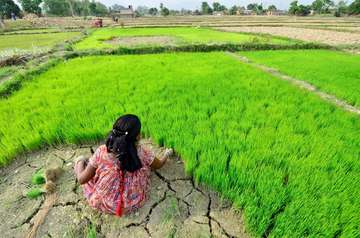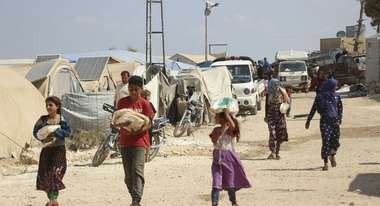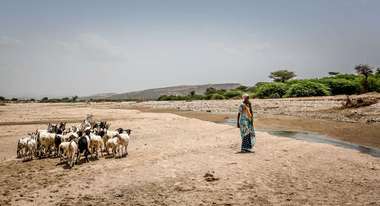Right to Food in Nepal: A Normative Triumph Faced with Challenges
Legislation in Nepal has set milestones at all levels. But the laws remain commitments on paper to a large extent. In practice, the means for implementation are lacking.
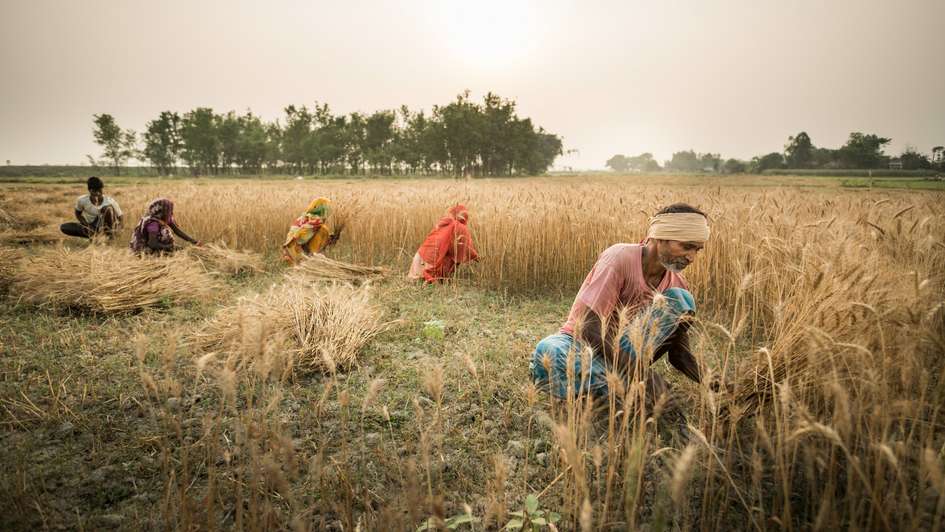
Nepal’s constitution enshrines the Right to Food and food sovereignty as fundamental rights. All levels of government are mandated to respect, protect and fulfil the Right to Food. But despite important legislative progress made, its implementation still faces enormous hurdles.
Nepal emerged from a decade-long Maoists armed conflict (1996-2006), a period that shaped its path towards democratization and peace-building. Recognizing extreme poverty, entrenched exclusion, discrimination, and the denial of economic, social, and cultural rights (ESCR) as root causes of the conflict, Nepal embarked on a journey of transformation. The Comprehensive Peace Agreement of 2006 marked the end of the conflict, followed by the Interim Constitution of Nepal 2007, laying the groundwork for a new constitution. Finally, in 2015, Nepal promulgated its new Constitution, embedding a strong commitment to ESCR, including the Right to Food and food sovereignty, aiming for sustainable peace and equitable prosperity.
While Nepal's constitution enshrines the Right to Food and food sovereignty as fundamental rights in line with international standards, in reality many Nepalese still do not enjoy this guarantee. The Fourth Nepal Living Standard Survey 2022-23 highlights widespread food insecurity, with over half the population experiencing varying degrees of insecurity and only 48.2 percent of households considered food secure. High rates of malnutrition, affecting 36 percent of children under five, along with 27 percent underweight and 10 percent suffering from wasting, compound this issue. Additionally, nearly half of pregnant women are anaemic.
Entrenched poverty further exacerbates the situation, with more than 20 percent of the population living below the poverty line, disproportionately affecting marginalized groups like the Dalit community. Addressing these challenges and realizing the Right to Food for all Nepalese remains a significant national endeavor.
Normative Triumph and Landmark Legislation
The 2015 Constitution of Nepal no doubt stands as a beacon of normative progress, safeguarding fundamental rights including the Right to Food, protection from hunger, and food sovereignty under Article 36. Alongside these provisions, the constitution ensures a range of other fundamental rights, such as the right to live with human dignity (article 16), housing (Article 37), employment (Article 33), equality (Article 18), social justice (Article 42), and access to clean water and sanitation (Article 35). The Constitution contains a number of directive principles and policies that also give effect to these fundamental rights.
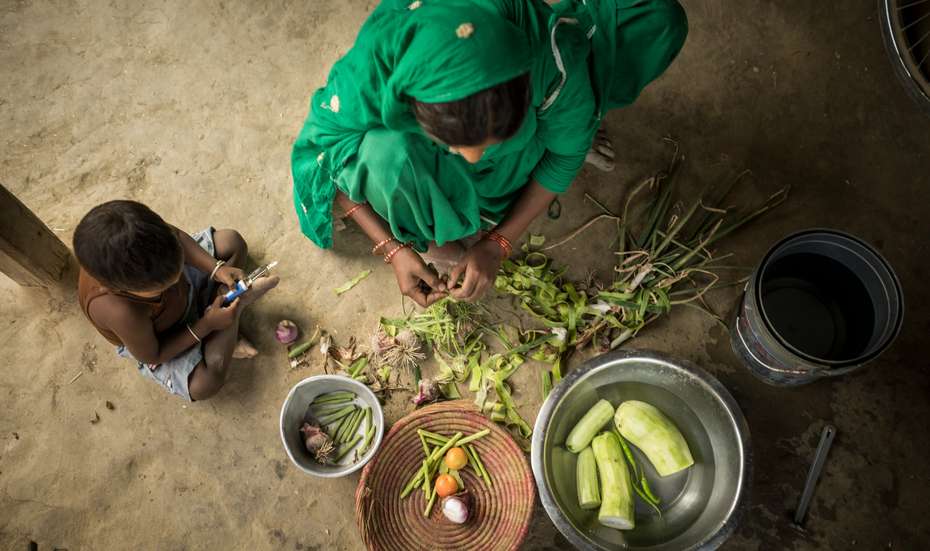
In response to the constitutional mandate to enact laws ensuring fundamental rights, Nepal introduced the Right to Food and Food Sovereignty Act in 2018. This landmark legislation not only addresses food security but also incorporates food sovereignty within the ambit of the human Right to Food. Mandating all tiers of government to respect, protect, and fulfil the Right to Food and food sovereignty, the Act aims to ensure food access without discrimination and guarantees protection of individuals and families from hunger or food insecurity.
State Obligations
Central to the Act is the obligation of the state to identify food-insecure households, categorize them based on their needs, and provide free or subsidized food assistance accordingly. Additionally, it provides for identifying and empowering peasants in food production and distribution systems, offering necessary support and protection to safeguard their livelihoods.
Provisions within the Act criminalize acts such as deliberately depriving individuals of food, obstructing food supply, and forcefully evicting peasants putting them at risk of deprivation of livelihood. Moreover, it mandates the establishment of a number of implementing mechanisms including national and provincial food councils, local food committees, and a comprehensive national food plan, along with food security programs at federal, provincial and local levels.
Complementing this legislative milestone are several other laws, including the Right to Housing Act, Right to Employment Act, Social Security Act, and amendments to land laws, all contributing to the realization of the Right to Food in Nepal in different ways. For instance, the 8th amendment to the Land Act, 1964 obligates the Government of Nepal to identify landless households and offer them access to land with legal security of tenure. The Housing Act, 2018 on the other hand prohibits forced evictions from settlement areas without proper verification and offering alternatives to prevent homelessness.
This normative triumph did not occur by chance but was the result of concerted efforts by various stakeholders. In addition, public consultations, advocacy campaigns, and the active involvement of civil society organizations, along with Nepal's commitment to international human rights treaties, further prompted this progress. Nepal Government's collaboration with UN agencies, including the Food and Agriculture Organisation (FAO) and the World Food Programme, was also instrumental in reviewing legislative frameworks and shaping the Right to Food and Food Sovereignty Bill and initiating dialogue around reshaping the food systems. Nepal's endorsement of the Voluntary Guidelines to Support the Progressive Realization of the Right to Adequate Food underscores its commitment to global food security efforts.
Last but not least, the Supreme Court of Nepal played a crucial role by acknowledging the state's duty to prevent hunger and laying the groundwork for the Right to Food. For instance, in the case of Prakash Mani Sharma and Others for Pro Public v. the Government of Nepal, Prime Minister and Council of Ministers and Others of 2010, the Supreme Court decided that every citizen has a fundamental right to live with dignity. It emphasized that any death caused by the scarcity of adequate food would be a matter of accountability for the state, as the right to live with dignity and the Right to Food sovereignty are guaranteed fundamental rights under the Interim Constitution of Nepal, 2007. In response to many other cases, the Court has also obligated the Government to provide feeding and sheltering service to those in destitution, protect farmland and set up mechanisms to provide compensation to farmers for loss of their crops due to wildlife.
Essential Regulations are Delayed
Despite notable progress in establishing legal frameworks, the implementation of the Right to Food and Food Sovereignty Act in Nepal faces significant hurdles. One of the most pressing issues is the prolonged delay in formulating essential regulations required for the Act's implementation. The Government of Nepal took nearly five years to develop the Right to Food and Food Sovereignty Regulation, impeding crucial provisions such as identifying food-insecure households and formulating a national food plan.
Moreover, there exists a prevalent misconception among bureaucrats and politicians, from local to central levels, regarding the economic affordability of implementing economic, social, and cultural rights, including the Right to Food. This perception impedes the prioritization of ESCR in economic policy making and budgetary allocations. The lack of oversight priority by national human rights institutions and parliamentary committees and ineffective coordination among federal, provincial, and local governments have also made implementation challenging.
The lack of coordination or sometimes unfair competition and conflict between local and federal level has also fueled violations of ESCR including the Right to Food. There even appears a reversal of progress in some respects due to this situation. The repeated cases of forced evictions of landless settlers and removal of street vendors without offering appropriate alternatives have caused livelihood crises for thousands of low-income families in Kathmandu and other cities.
A weakened rights-based approach, both domestically and internationally, further complicates the realization of the Right to Food in Nepal. Political commitment to these rights has also diminished during the constitution's implementation phase, exacerbating challenges. Additionally, officially endorsed indicators for monitoring the progressive realization of constitutional and legal guarantees are still lacking.
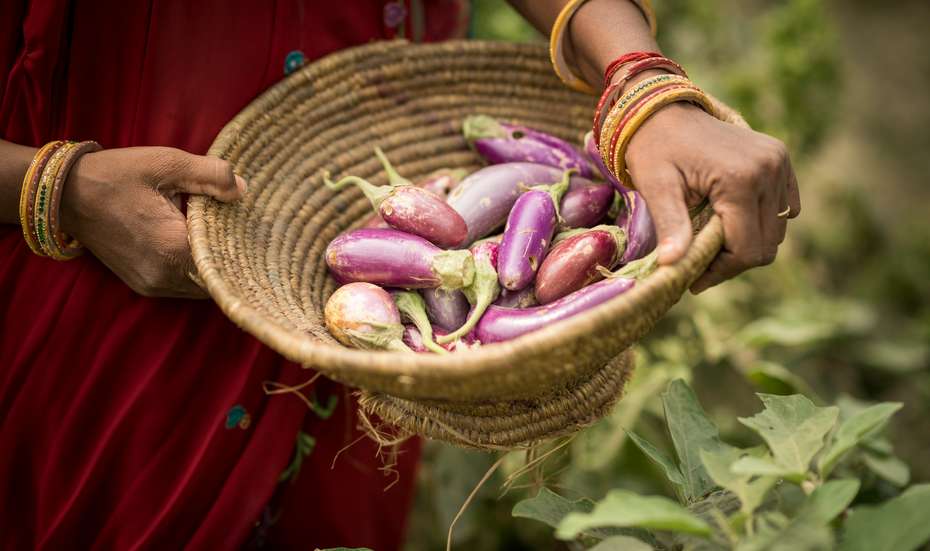
There has been little effort to properly sensitize the marginalized and disadvantaged communities about these legal guarantees. Issues related to the Right to Food have still been marginalized in the human rights communities and civil society given their traditional emphasis on civil and political rights as hardcore human rights. As a result, harmonizing the Right to Food and food sovereignty law and other preexisting sectoral laws related to natural resources still has to be achieved to give indigenous and local communities enhanced access to natural resources.
Overcoming the Challenges
Urgent attention is required to overcome these obstacles. First and foremost, the Nepal government must promptly establish and implement necessary rules, procedures, standards, plans, and institutional mechanisms, to fulfil constitutional promises. Innovative economic policy-making aligned with constitutional and legal obligations is imperative.
Promoting collaboration among multiple stakeholders, raising awareness among rights-holders and those in charge at national as well as sub-national level can enhance government accountability towards implementation of the Act. It is crucial to embed human rights principles into government policies and programs, alongside post-legislative scrutiny by parliamentary committees and proactive monitoring by national human rights institutions.
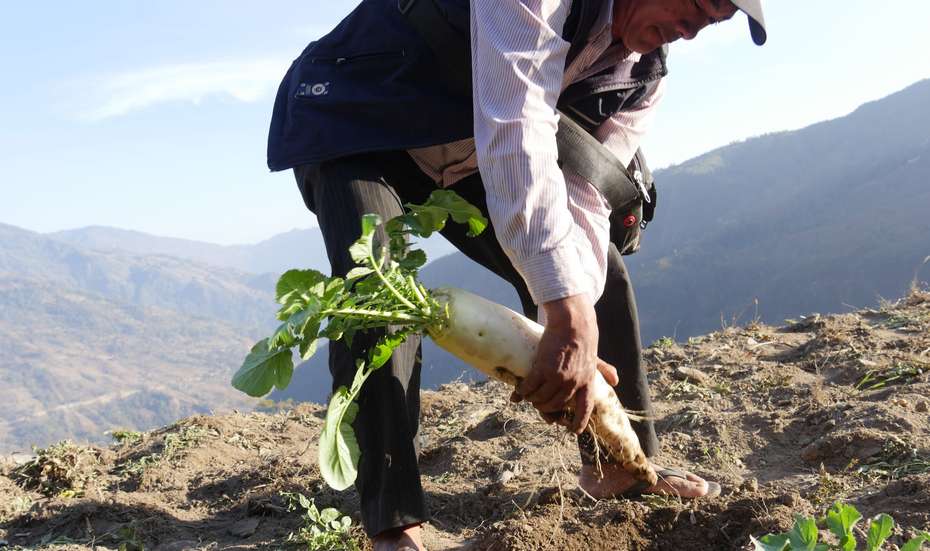
Civil society organizations must leverage strategic litigation and advocacy to hold authorities accountable. By addressing these pressing challenges and ensuring the effective implementation of the Right to Food, Nepal can pave the way for making access to food a reality for all its peoples.
Lessons from Nepal
Nepal's robust constitutional and legislative framework for the Right to Food and food sovereignty is commendable and may serve as a beacon for other countries who aspire for legislating the Right to Food and food sovereignty. However, the country's experience also offers valuable lessons. While securing legal guarantees is essential, parallel efforts to sensitize a wide range of stakeholders including beneficiaries and establish implementing infrastructures are equally vital.
Parallel initiatives should also be taken to harmonize economic policy-making with these guarantees, necessitating a thorough socio-economic impact assessment of the law to anticipate and address potential implications. Strengthening the judiciary's role and other oversight mechanisms such as national human rights institutions in advancing governmental accountability is imperative for effective implementation.

